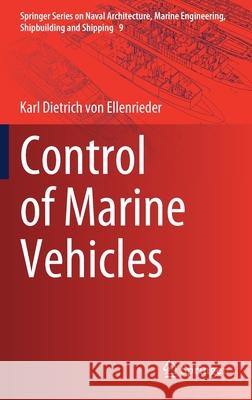Control of Marine Vehicles » książka
topmenu
Control of Marine Vehicles
ISBN-13: 9783030750206 / Angielski / Twarda / 2021 / 533 str.
Kategorie:
Kategorie BISAC:
Wydawca:
Springer
Seria wydawnicza:
Język:
Angielski
ISBN-13:
9783030750206
Rok wydania:
2021
Wydanie:
2021
Numer serii:
000904328
Ilość stron:
533
Waga:
0.94 kg
Wymiary:
23.39 x 15.6 x 3.02
Oprawa:
Twarda
Wolumenów:
01
Dodatkowe informacje:
Wydanie ilustrowane











